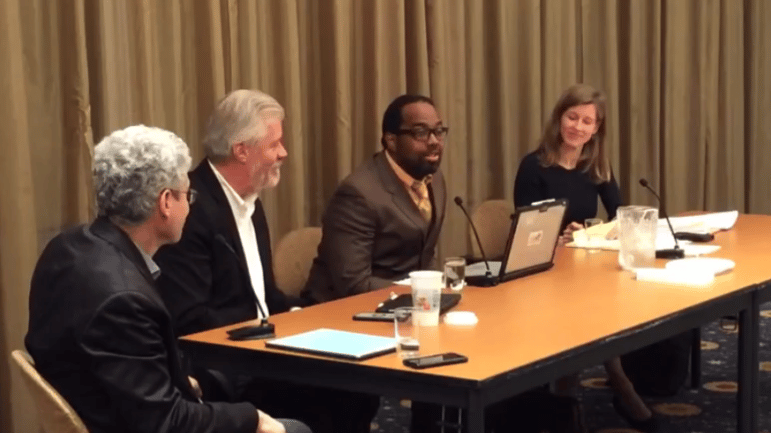
Closing Indian Point: Safe Decommissioning and Re-Powering NY with Sustainable Energy
On January 10th, CEE’s Director, Karenna Gore, participated in a panel discussion regarding one of NY’s most important issues: the closing of Indian Point. Long considered a public health risk due to leaking radioactive water, the aging power plant has experienced recurring emergency shutdowns and is shown to be vulnerable to both human and natural disasters, such as an earthquake. An accident at Indian Point could bring destruction and contamination as far south as New York City. Now that the state has reached an agreement to close the plant, the conversation must turn to how, and what happens in it’s stead. The easy answer may seem like natural gas, but, the science of keeping global warming under 1.5 degrees doesn’t support that claim. “I want to emphasize that fracked gas is not the answer,” Karenna reminded. “It is not a bridge fuel.”
Facebook Live video from our “Closing Indian Point” forum:
https://www.facebook.com/HudsonRiverkeeper/videos/10155579494789262/
Meet our panel: Karenna Gore, Director of the Center for Earth Ethics; Cecil Corbin-Mark: Deputy Director, WE ACT; and Karl R. Rábago of the Pace Energy and Climate Center. The moderator was Paul Gallay, President and Hudson Riverkeeper.
Paul Gallay, President and Riverkeeper explains, “Once Indian Point is closed, we won’t need to rely on fossil fuels to make up for its energy. Peak demand in the region will have declined by more than the 2,000 megawatts the plant generates, and the replacement power will be carbon neutral as the State further increases its clean energy investments,” said Gallay. “There will be little impact on electricity bills — between $1 and $2 dollars a month — which is a small price to pay for minimizing the risk that this plant poses. Going forward, new efficiency and renewable energy projects will drive still greater savings for consumers, thanks to aggressive energy investments by the state. It’s a new day for New York and the Metro region.”
Cecil Corbin-Mark talked about the great work WeAct is doing on energy efficiency in NYC and how that is part of the picture of meeting our energy needs.
Karenna spoke during the panel on faith, ethics and climate, “This conversation is about more than economics and science. It’s about morals and ethics and our responsibilities to humans across the world and here, as well as non-human life, and future generations.”
For more information on the Closure Agreement and Riverkeeper’s promise to ‘compel full compliance’ click here: Riverkeeper.org.
